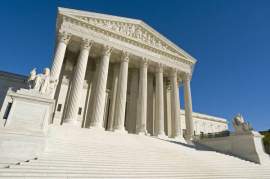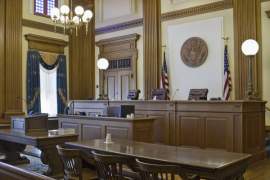
Lochner v. New York

The case of Lochner v. New York took place in 1905. This case is thought to be one of the most historic and groundbreaking cases in the history of the United States. Lochner v. New York deals with labor laws and it all started when Joseph Lochner, a baker in Utica, New York, argued against state laws that created boundaries on when Mr. Lochner can run his business.
The laws were passed as part of the Bakershop Act. This legislation, which was passed in 1895, prohibited all bakeries in the state from operating over 60 hours during a single week. In response to this law, Joseph Lochner said that if he and his staff wanted to work more than 60 hours in one week, they should be allowed to do so because that’s what the 14th Amendment to the United States Constitution permits. This Constitution states that any government in the United States cannot block an individual from pursuing happiness in a legitimate manner.
Lochner v. New York: The Case Profile
The case of Lochner v. New York took place on February 23rd of 1905. The case was filed by Joseph Lochner because he felt that New York law regarding hours of operation for bakeries were unconstitutional and a direct violation of his civil liberties of “Life, Liberty and the Pursuit of Happiness.”
The case of Lochner v. New York was heard on February 23rd of 1905 and was decided on April 17th of the same year. Lochner v. New York was heard in the United States Supreme Court.
Lochner v. New York: The Verdict
The United States Supreme Court in Lochner v. New York found that the Bakership Act was in direct violation of the United States Constitution. The Court found in Lochner v. New York that the state cannot enforce restrictions on an individual’s business if there was no good reason to pass such a law. Furthermore, the United States Supreme Court ruled that individual states were not able to regulate legal employment—only the federal government can do this.
The case of Lochner v. New York dealt with the 14th Amendment to the United States which does not allow the government from getting in the way of a citizen’s ability to pursue ‘Life, Liberty and the Pursuit of Happiness’ with regard to all citizens of the nation. This provision to the Constitution is applied to all citizens regardless of a person’s gender, religion, age, or race. And this is the provision that was responsible for deciding the case of Lochner v. New York.



















